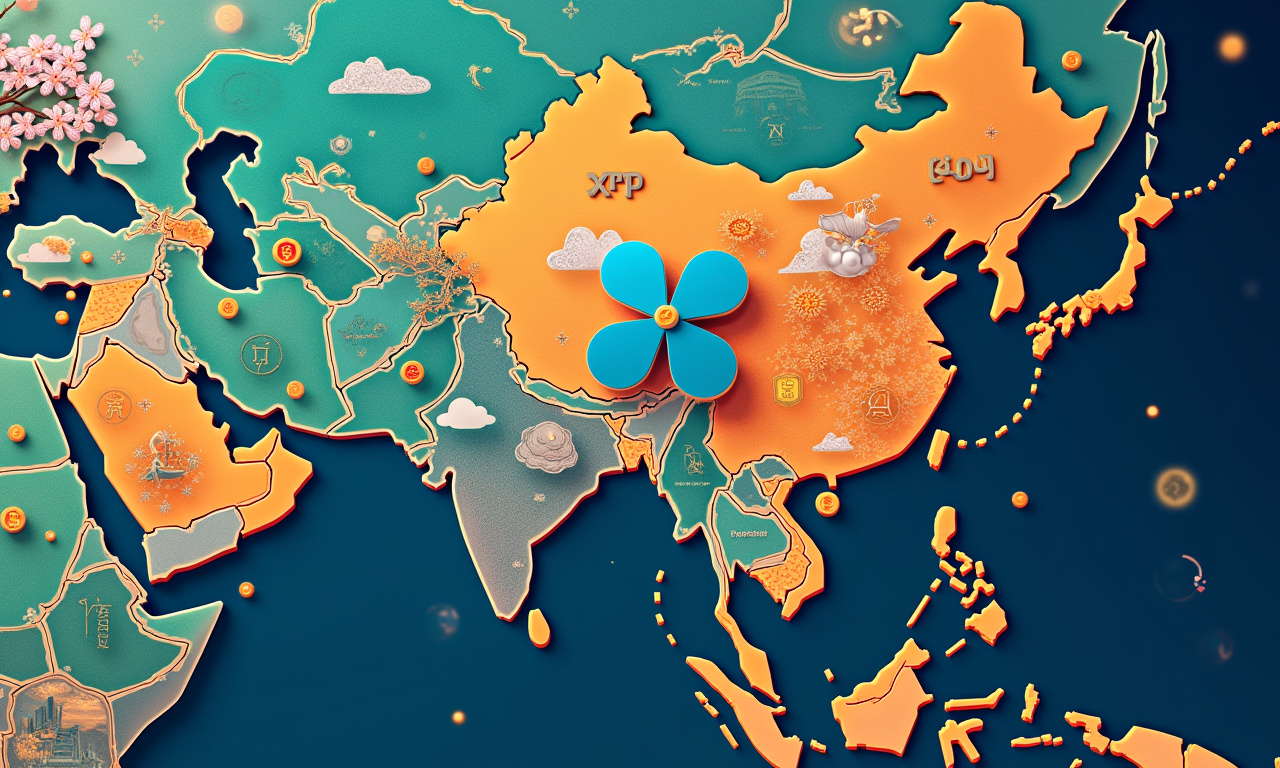
Is Aethir's AI Unbundled the Web3 Boost Asia Needs?

Josefa dela Cruz
Let’s not sugarcoat it, Web3 seems like a far off dream for most Asian startups. We’re hearing something very different on the ground. Despite being bombarded at every turn with headlines lauding blockchain for public innovation, access to resources, particularly the GPU infrastructure that’s key to successful AI development, is another big barrier. Funding I wouldn’t even go that far – considering how quickly Western VCs forget the jaw-dropping potential that’s actually gathering steam right here in Asia. Which brings us to the question of Aethir’s “AI Unbundled” alliance, and how it is going to do better.
GPU Access: The Real Asian Bottleneck?
Think about it. We’re discussing dynamic, innovative, rapidly-growing ecosystems like the Philippines, Indonesia, Vietnam – countries teeming with talent and ambition. These founders are eager to create the next wave of AI-enhanced Web3 apps. What if they can’t even get the computing power they require?
Aethir’s potential to be the primary provider of distributed GPU infrastructure is tremendous. It’s more than just making sure they have the resources—it’s opening up the playing field. It’s time to level the playing field and give Asian startups a fair shot to compete with their counterparts all around the world. We’ve witnessed countless amazing ideas blossom—not just to survive but to thrive—all due to inspiration and creation combined with access and opportunity. Aethir’s collaborative spirit might be the best antidote to this innovation’s silent killer.
Let's not get carried away. Will it be enough? Is Aethir REALLY decentralizing access, or just building a new layer of centralized control with a different set of bad actors? That’s the important question we should be asking. If it’s only the latter, it’s all just moving the deck chairs on the Titanic. We must hold them accountable to the promise of true decentralization.
I’m personally invested in this. But as a Filipina, I cannot discount what I’ve seen over the years—the creativity, grit and resourcefulness of entrepreneurs from developing Asian countries. We need to hear their stories. We need to understand their struggles. I want to know how this alliance translates into real-world impact for founders like Maria in Manila, who's building an AI-powered platform to connect farmers directly with consumers, or for Jian in Jakarta, who's developing a blockchain solution to combat deforestation.
More Than Tech: Founder's Stories Matter
These are not hypothetical MLS players to be, these are real folks, pursuing real aspirations. And their success is connected to the success of the Asian economy overall. This new alliance should focus on uplifting these stories and making sure that their influence is surfacing at the community level. Telling the story of these successes will inspire, amaze and create wonder. And it will show that Asian innovation, powered by decentralized, bottom-up talent, can be a very effective antidote to solving real-world problems.
This is where the anxiety kicks in. Alliances sound good on paper, but alliances centralize power and resources which causes them to break down to a centralized power structure. Are the partners in “AI Unbundled” really committed to the aim of decentralization? Or are they simply shooting for a larger slice of the pie. What about the AI Superintelligence Alliance? How does Aethir's approach differ and why?
- Maria (Manila): AI-powered platform connecting farmers and consumers.
- Jian (Jakarta): Blockchain solution to combat deforestation.
- [Your Startup Here]: The next Asian Web3 success story?
Decentralized Utopia or Centralized Control?
In order to build trust, Aethir should publicly commit to a governance model that places an emphasis on transparency. To understand what needs to change, we need a clearer understanding of how these decisions are made and where power lies. Is it really a decentralized ecosystem, or indeed, a highly controlled pro-partner network? The devil, as always in these things, is in the details. If it’s only a centralized entity pretending to be decentralized, the fallout may be catastrophic. It would harm competition, curtail innovation and in the end simply not work as promised.
That surprise and curiosity about the true nature of this alliance is a potent engagement driver. Everyone wants to know if this is the real McCoy, or just another bait-and-switch.
Aethir’s success will be measured in its real-world impact. It’s no longer about the cool press release, the great sounding partnership, it’s what it actually does on the ground. Will it enable developers from Asia to create the most innovative Web3 solutions ever seen? Or, will it actually level the playing field and lead to a genuinely decentralized AI ecosystem? Only time will tell. One thing is certain: the future of Web3 in Asia depends on it. We need to hold them accountable.
| Feature | Decentralized Utopia | Centralized Control |
|---|---|---|
| Governance | Open, transparent, community-driven | Opaque, top-down, controlled by a few |
| Access | Permissionless, equitable for all | Restricted, favoring established players |
| Innovation | Free-flowing, diverse, driven by many | Stifled, homogenous, dictated by a central authority |
| Long-Term Impact | Sustainable growth, empowered communities | Short-term gains, concentrated wealth |
The surprise and curiosity about the true nature of this alliance could be a powerful driver of engagement. People want to know if this is the real deal, or just another empty promise.
Ultimately, Aethir's success will be judged not by its press releases or its list of partners, but by its impact on the ground. Will it empower Asian startups to build groundbreaking Web3 applications? Will it level the playing field and foster a truly decentralized AI ecosystem? Only time will tell. But one thing is certain: the future of Web3 in Asia depends on it. And we need to hold them accountable.


